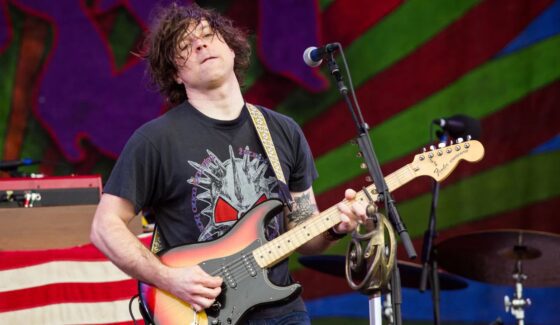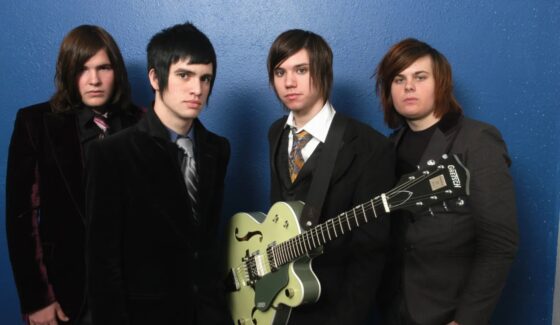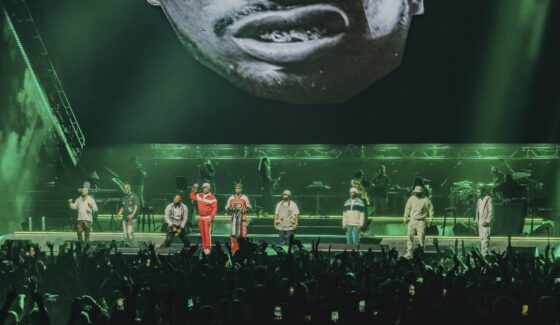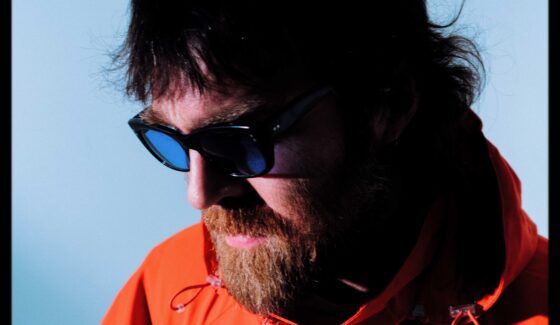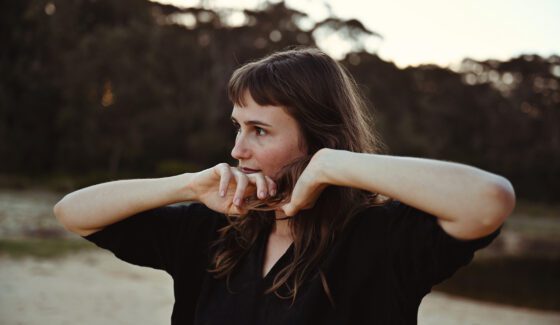Interview (Part 1): Joel Edmondson, QMusic Executive Officer
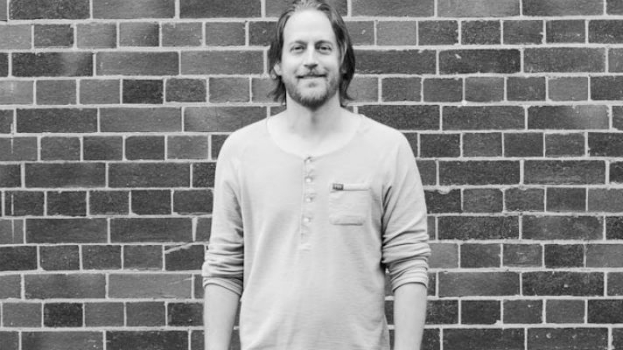
Joel Edmondson, Executive Officer of Q Music, is probably Queensland music’s greatest advocate. He oversees Australia’s biggest music industry event BIGSOUND, the annual Queensland Music Awards, and the multitude of services QMusic offers to Queensland musicians and industry professionals. In the first of two interviews, we spoke to Joel about the Queensland State Government’s consultation process regarding the revised lockout laws and their impending impact on live music venues and patrons.
APRA/AMCOS recently released data showing a 40% drop in Sydney’s live music revenue between 2013 and 2015, which has been attributed mostly to lockout laws. Do you think a similar thing will happen to Brisbane under Queensland’s new lockout laws?
All I can say is that there’s absolutely no evidence to say it won’t not happen… So you’re expecting negative fallout from the Queensland lockout laws? I think the Queensland government is now in a situation where it absolutely must do some early work with the venues and young people so that the impact on live music is minimised. I don’t have the answers, I think the answers are about government support and collaboration and communication between everyone that’s involved, because that didn’t necessarily happen in Sydney and the venues were just left to die. Again, there isn’t any evidence to show that [lockout laws] won’t harm Queensland’s venues. Major intervention to protect them is now required.
Was there any consultation between Q Music and the Queensland Government in regards to the Queensland’s lockout laws?
We attempted, for a couple of months, through various channels to get meetings with various ministers…
Before the recent legislative announcement?
Yes, that’s right. Obviously this is something that’s been discussed in parliament for a long time. We’ve been lobbying through channels to get meetings, particularly with the Attorney General and the Premier, to help them understand our concerns. Prior to when the bill went to the house for debate, the parliamentary committee released a list of all the organisations that the government “proudly” consulted with. That list didn’t have QMusic or any music industry stakeholders…it did have the craft beer association of Queensland…
Craft beer stakeholders were consulted but not QMusic?
Yeah, so up until now there has been a total lack of understanding within government that [lockout laws] would affect the music industry. It wasn’t something that had been considered, despite all of the ongoing press about Kings Cross and the death of live music there. Then the day before it went to debate in parliament I [was] invited to go and speak to the Attorney General, which felt token given they’d already made their mind up. I don’t think you can call it consultation if the decision has already been made. However, there was a commitment that was made to me in that meeting, and in both The Australian and The Courier Mail, that the Attorney General would be working with the music industry to implement [lockout laws] so that the impacts on live music were minimised.
So how’s the consulting process going since the announcement of the new lockout laws?
I had a positive meeting with the Attorney General’s staff last week, and an expectation has been set by them that there will be some genuine collaboration to protect live music as much as possible from the impacts of the lockouts. I’m pleased that there is now a more conciliatory attitude of understanding from their end. To a certain extent it’s too late because the legislation has already passed, but if there’s anything we can [do] now that can make a difference, we’ll do it. In the end, sentiment is nice, but outcomes are what matters. That’s what I’m focused on.
When are you expecting the government to reach out to Queensland’s music industry again?
In the coming week is my expectation. Hopefully we can turn this situation around in a way that benefits live music and also meaningfully deals with the problem of alcohol-related violence. There’s compelling research out there that says live music actually reduces alcohol related violence because it provides a point of distraction and entertainment, so the night isn’t just about drinking. So [to reduce alcohol fuelled violence] you’ve got to support the entertainment industries active in the night economy. About 42% of revenue from performing arts ticket sales in Queensland in 2014 were from contemporary music, so there is massive public engagement, but the sector has never been treated like a strategic partner of government where issues like this are concerned. There’s a chance here for the music industry and government to both get what they want with the right relationship, investment, and strategy.
How do you think the revised lockout laws will impact venues and their patrons?
The proposal [regarding the lockout laws] we originally put to government was for exemptions from the lockout for live music venues, while compromising by retaining a 3am close. Almost all the live music venues we were able to speak to seemed pretty happy with that close time. The issue is that venues make their money for the week over the bar between 12am and 3am on a Friday and Saturday night after the bands have mostly finished, and without it, they can’t really stay open. If you’re locking people out at 1.30, that makes it really difficult for them to keep operating. The reality is that lockouts don’t really stop people drinking any more than if there weren’t lockouts because either they’ll stay locked in the venue they’re in and drink more, or there’s the scenario where you’ve got an increased likelihood of cab-line violence, frustrated people walking around, and urination in the streets.
More regulation isn’t going to change whether people drink a lot because people will find another way of doing it, they’ll pre-load and do plenty of other [things that lockout laws] won’t influence. We want to see a peaceful night out for everyone, but also want to see a strategy that will actually achieve that. From here, I’m hoping that a broader range of realistic measures will be put in place to both deal with alcohol-related violence and support live music.
Melbournians marched against their city’s nightlife laws almost six years ago, and the changes [as a result of] that have led to Melbourne becoming one of the world’s most cultural cities. Do you think the Keep Sydney Open marches and the proposed marches in Brisbane will actually change legislation?
Personally, I believe the effect of [these marches] will be more long term and accumulative, mainly in terms of resentment towards the political classes on both sides. This legislation is politically motivated and is embedded in law now, and the unfortunate reality is that there is an enormous part of the electorate in support of it that have lapped up the conservative disinformation and fear peddled by the mainstream media and politicians.
The Monthly recently published a great article about the Baby Boomer generation and its grip on Australian society. It talks about the way young people are becoming increasingly marginalised by privileged older people in positions of power who don’t have any interaction with or realistic conception of the world young people live in. [They] view it from afar with fear or indifference, rather than accepting there’s a particular lifestyle many young people want to lead and having the respect to involve them in problem-solving about their own lives. The idea that young people need more rules to keep them safe is pretty sanctimonious, particularly if young people haven’t been involved in coming up with those rules. We have a government who claim that they’re doing this to protect our health and wellbeing, while at the same time approving coal mines that will permanently damage the health and wellbeing of future generations. Make of that what you will.
Teenagers and young people have always felt hard done by and over-policed by their elders, so isn’t this rebellion against legislation just part of growing up?
Absolutely it is. Premier Palaszczuk was a staunch 4ZZZ radio member when she was younger and part of this alternative youth culture. [There’s] this journey people make in their life cycle from being radical when they’re young to becoming more conservative as they get older. But as they get older they seem to forget who they were, and suddenly the life they lived starts to feel like a terrifying, threatening thing. In fact…the stats say the Western world is safer now than its ever been, yet we’ve got increasingly draconian laws, and [they] aren’t keeping us safer – they were sold to us on the basis that there’s a terrifying world out there. Statistically, the Valley is safer than it’s ever been. Young people don’t need any more fear-based policy and legislation.
All of this political debate about the lockout laws has sadly masked the deeper social issues that aren’t being talked about or addressed. The idea that violence is just about alcohol is a complete fallacy. What it’s actually about is a culture of sanctioned male aggression in our society. Let’s deal with that if we’re serious about the problem of alcohol-related violence. If you go to Germany for Oktoberfest for example and everyone’s drunk, or to Japan where you can buy alcohol from vending machines, no one’s king hitting each other…
Read Part 2 of our interview with Joel HERE
The 2016 Queensland Music Awards will be held this coming Monday at the Brisbane Powerhouse, lineup and info below!
2016 Queensland Music Awards
MON 21 MARCH
Powerhouse, Brisbane
Featuring performances by
The Belligerents
Ayla
Astro Travellers
Amy Shark
Standby Empire
Balloons Kill Babies
Luke Daniel Peacock
Get Tickets HERE
